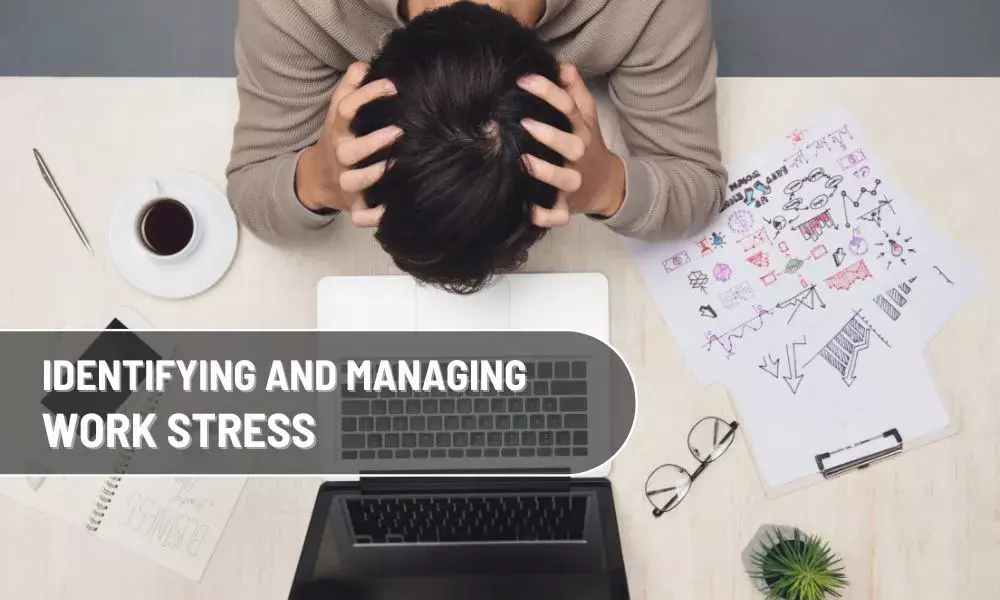With our fast-paced lifestyle, high career aspirations, and hectic work schedules comes along work-related stress. Stress of any sort is harmful to our mental health.
It is crucial to identify the stress factor and manage these factors effectively so that they do not cast an unhealthy impact on our mental well-being.
The major areas that cause work-related stress are relationships, roles, demands, support, control, and change.
Stress may affect people differently; things that may stress one person may not affect another. For instance, a particular job role in customer service may excite someone with the same background or someone with domain knowledge but may not seem interesting to someone with a different experience.
Similarly, a change in office timing or change in line manager reporting may have different reactions from different individuals. But those who suffer from work-related stress may show some common signs.
Identifying Stress
Employees who are stressed may reflect changes in how they behave, interact, react, and perform in their workplace. They may show below signs at their workplace:
-
Feeling isolated and not interacting with the team
-
Being negative about company policy and work
-
Feeling nervous
-
Being indecisive on the job
-
Being unable to Concentrate
Such employees may show below signs at a personal level:
-
Face difficulty sleeping
-
Change in appetite or binge eating
-
Disinterested at home or losing interest in favourite activities
-
May indulge more in smoking, drinking alcohol, or taking drugs to cope
If one experiences stress at work, it is important to talk to someone, for example, your colleague or manager. When you speak to them as soon as possible, it may give them a chance to help and stop the situation from getting worse.
Many workers are not willing to discuss their stress at work. This is because of the stigma that stress is associated with. But stress is not a weakness. Instead, it can happen to anyone.
The earlier a problem is addressed, the less impact it will have. If you feel that a co-worker is having problems, encourage them to talk to someone and discuss the issue.
However, for an employer, there are feasible ways to redesign work to support the well-being of employees and yield long-term benefits to the organization. Here are four practical ways for employers to manage work stress:
-
Control over how they do their work.
Having little discretion or no control over how work gets done is directly associated with poor mental health. Even small changes in worker autonomy can make a difference in employee well-being.
-
Flexibility in operation.
If employees are given more choices or control over their work schedules, it may improve their mental health. This can involve simply permitting varied login and logout times. A hybrid working option with 100% work accountability is a much more feasible option in case an employee cannot travel to his workplace. This may help employees manage factors like time and health.
-
Opportunities to solve workplace problems.
When employees are given opportunities to participate in workplace improvements like identifying and resolving problems, this can help improve their well-being as it can increase the involvement of the employees in organizational matters. This also increases the sense of belonging among the employees.
-
Employee’s personal needs should be valued.
Many employees play the role of caregivers to their children or elderly parents. They benefit from supervisors who are more supportive of the challenges they face in trying to balance their work and personal lives. Unnecessary work stress can disturb the focus of such employees and affect their performance. A healthy work-life balance can help employees perform better without stress.
In a nutshell, work-related stress can impact an employee’s mental health and performance. Therefore, the early it is dealt with, easier it is to resolve and manage.





